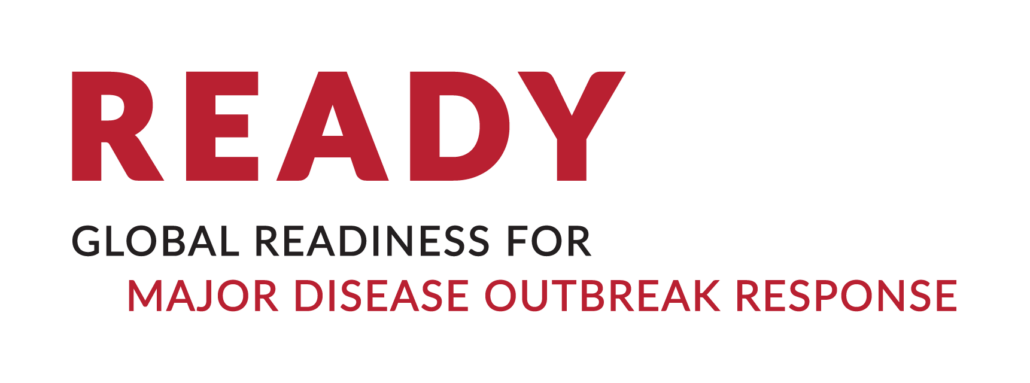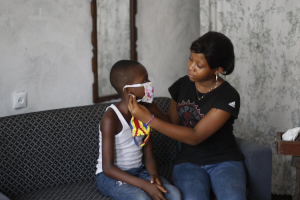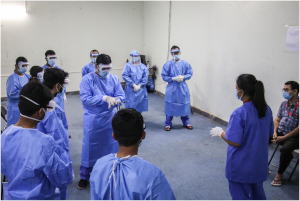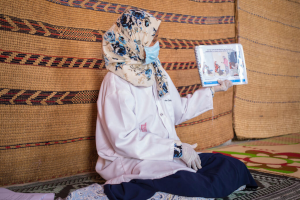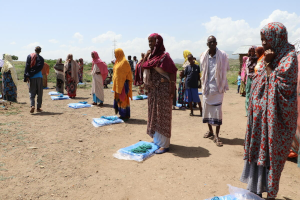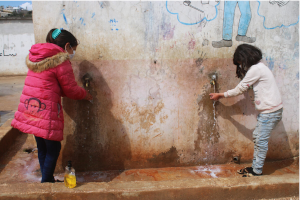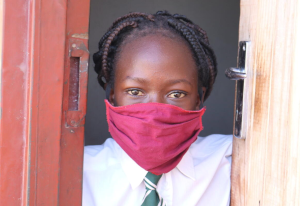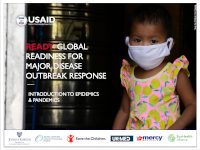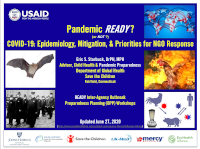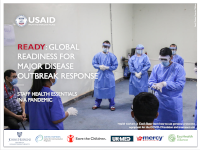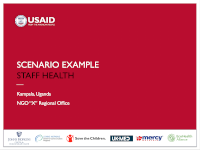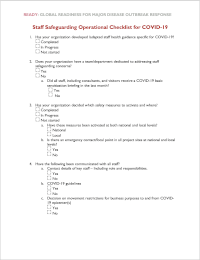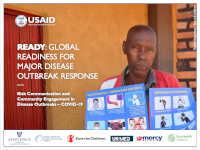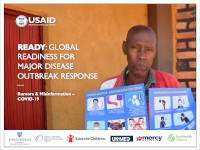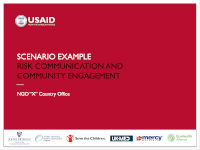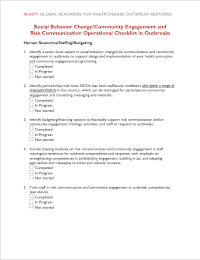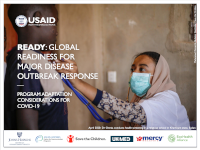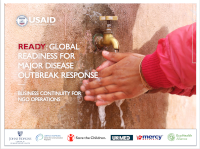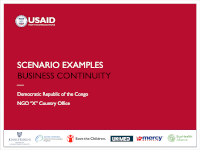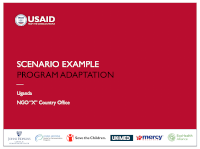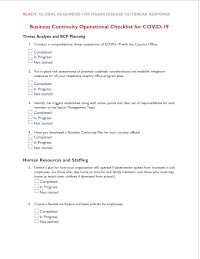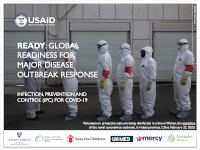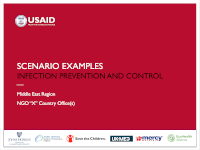Workshop Materials
These materials were developed as part of READY’s COVID-19 Readiness Workshop Series, a succession of regional and national virtual workshops designed to strengthen NGO operational readiness for the COVID-19 response. We encourage you to use and adapt these tools for your own organization, even if you weren’t able to attend one of the workshops virtually.
In the sections below, you will find foundational presentations, interactive scenario-based exercises, and operational checklists to help organizations review and improve internal capacities, program adaptation frameworks, and operational platforms, ultimately leading to a stronger and more integrated response to the COVID-19 outbreak. You may view and download these materials from their sections, or use these links for bundled downloads:
If you have any questions about these materials or are interested in learning more about READY’s work, please contact us at ready@savechildren.org.
Please note: These materials were designed to reflect the level of outbreak readiness among participants at the time the workshops were delivered. They may not represent the most up-to-date knowledge on COVID-19. Users should always reference national laws and COVID-19 guidelines, in addition to these materials.
COVID-19 Basics
In this section, you will find a foundational presentation on outbreak terminology and the International Health Regulations and declaration of a public health emergency. The presentation also spotlights COVID-19 technical tools and guidelines.
Staff Health
This section includes a foundational presentation on the importance of staff health and key principles for establishing staff health policies. Additionally, there is an interactive scenario-based exercise to solicit discussion around ensuring staff health.
RCCE
This section features a foundational presentation on risk community and community engagement (RCCE), and a separate presentation on rumors and misinformation. Interactive scenarios to spur discussion, and an operational checklist.
Business Continuity and Program Adaptation
These materials address business continuity during the COVID-19 outbreak and principles for evaluating and adapting programming.
IPC
This section covers infection prevention and control (IPC) and how to apply recommended COVID-19 guidelines at the health facility and household levels, and includes interactive scenario-based exercises to elicit discussion around these topics.
READY Updates by Email
Subscribe to READY’s email list to receive notices of upcoming events and other project news
